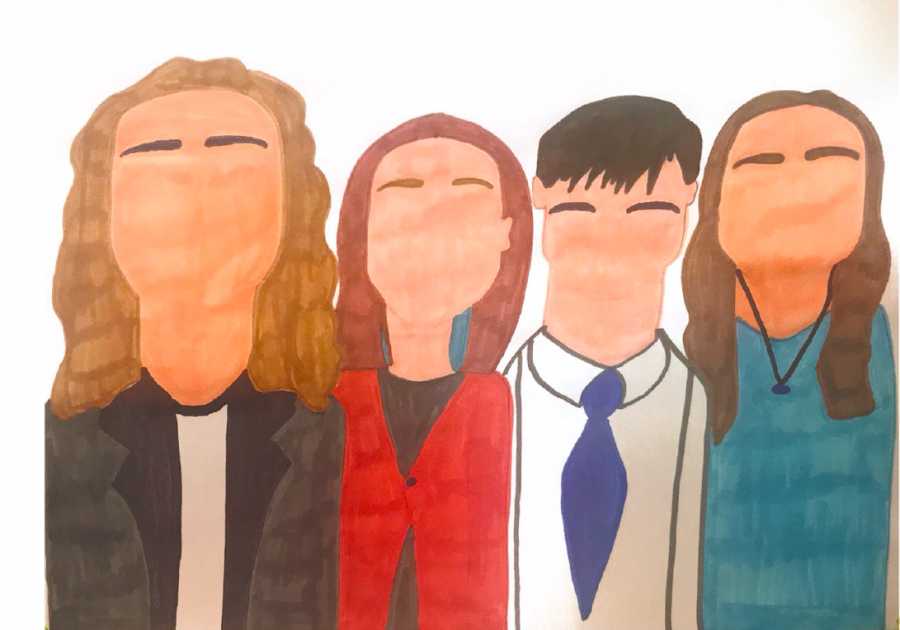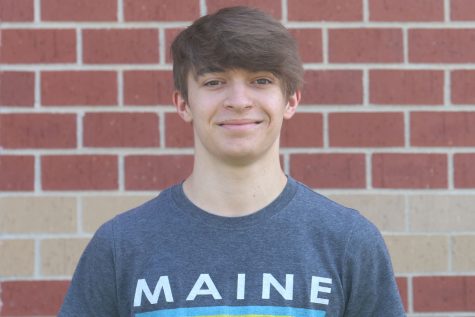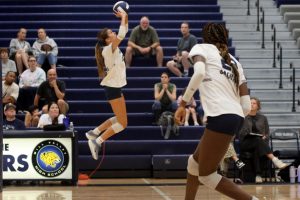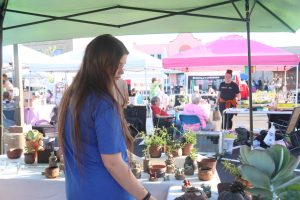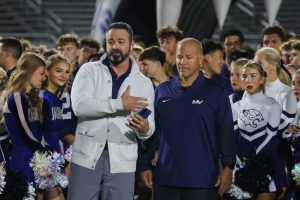Debate team participates at 4-speaker state competition
Freshmen Emma Clement and Grace Cormany went 3-4 at the competition and freshman Ben Hansen and senior Amanda Reynolds went 2-5
Jag Debaters senior Amanda Reynolds and freshmen Emma Clement, Ben Hansen, and Grace Cormany competed virtually at “KSHAA 4 Speaker State” Jan. 15-16. Clement and Cormany went 3-4, while Hansen and Reynolds went 2-5.
February 2, 2021
At the 4-Speaker State Competition Friday, Jan. 15 through Saturday, Jan 16, the debate team had win-loss records of 2-5 and 3-4. At an ordinary 2-speaker debate tournament, two partners will rotate between being on the affirmative and negative sides of an issue. At 4-speaker, however, the format changes.
At the 4-speaker competition, a school is represented by two partnerships that will each debate one side (either affirmative or negative) the entire tournament. One of these two partnerships that represented Mill Valley was the duo of freshmen and first-year debaters Emma Clement and Grace Cormany. The other partnership was made up of freshman Ben Hansen and senior Amanda Reynolds.
According to Cormany, this dynamic of always being on the same side of the issue makes preparation for that one side of the issue much more intense leading up to the tournament.
“The main differences [between 2-speaker and 4-speaker] are that one is traditional and one is very unorthodox,” Cormany said. “When it comes to 4-speaker debate, preparation is more intense for one side.”
Clement echoes this sentiment, stating that the different format just “means that the preparation and overall experiences are very different.” She believes that the team dynamic of 4-speaker makes it more of a team event.
“In my opinion, 4-speaker is much more of a team event than 2-speaker because success requires both teams to do well,” Clement said.
Cormany and Clement had a win-loss ratio of 3-4 at the tournament and Hansen and Reynolds went 2-5. According to Cormany, their performance exceeded expectations, especially considering that three of four debaters were some of the very few first-year debaters at the tournament.
“I think the team did pretty well considering three of us were most likely the only novices at the tournament,” Cormany said. “I definitely owe it all to [Clement]. She did a fantastic job.”
Given that this performance was pulled off by primarily first-year debaters who were thrown into a much more experienced field of competitors, Cormany is confident that their performance foreshadows how well they might be able to do in the future.
“Qualifying for state as a novice definitely pushed me outside of my comfort zone and showed me what debate could look like in the upcoming years,” Cormany said. “The fact that we were able to grab a few wins in a tournament full of varsity debaters was promising, and I think that hard work and dedication to debate will reflect our results at future tournaments.”
In the downtime between now and the opening of the 2021-2022 debate season, most debaters will turn their focus to forensics, many will attend camps over the summer to hone their skills, and the incredible amount of research that goes into preparing for a debate season will be underway.
More results and information on the 4-speaker competition can be found here.


